The Judeo-Christian Paradox, Part II
Analyzing the claims upon which the Jewish religion is founded...
“Strictly speaking, it is incorrect to call an ancient Israelite a “Jew” or to call a contemporary Jew an “Israelite” or a “Hebrew.” The first Hebrews may not have been Jews at all, and contemporary Palestinians by their own definition of the term “Palestinian,” have to include Jews among their own people…
How these curiosities of terminology evolved is a complicated and interesting bit of history.”
― The Jewish Almanac (1980), Pg. 3
The Wolves Within is a must-read for every believer who refuses to be deceived.
Hit the Tip Jar and help spread the message!
This post contains affiliate links, which means I may receive a commission or affiliate fee for purchases made through these links.
Unlock the mysteries of Biblical cosmology and enrich your faith with some of the top rated Christian reads at BooksOnline.club.
Click the image below and be sure to use promo code SCIPIO for 10% off your order at HeavensHarvest.com: your one stop shop for emergency food, heirloom seeds and survival supplies.
Related Entries
The origins of Rabbinic Judaism, as we understand it today, are not ancient or continuous but a product of the post-exilic period, emerging during the 2nd Century AD as a response to the failed revolt of Bar Kokhba and the subsequent Roman destruction of Judea. The transformation from a nationalistic, temple-centered religion to the synagogue-based system that characterizes modern Judaism was not a natural evolution, but a radical reconfiguration orchestrated by a select group of Pharisees. Seeking to preserve their influence and way of life, the Pharisees adapted to the loss of the Temple and the dispersion of the Judean people.
This transition marked the birth of what we now recognize as Talmudic or Rabbinic Judaism — an invention, not a continuation of the faith of Moses and the Prophets.
Before we continue, it is germane to our discourse to clarify how the Scriptures use the word Jew, not the culture at large. It is important to elucidate the fact that, contrary to the assumptions of many, the word "Jew" (in its Biblical sense) does not correspond to the broad, monolithic conception of "Judaism" or the Jewish peoples that we have today. Indeed, the word "Jew" itself, in its modern usage, is not rooted in the Scriptures but emerged long after the period of the Israelites: its earliest English usage dates to roughly 1000 AD. As highlighted in The Jewish Almanac, it is a historical anachronism to refer to ancient Israelites as "Jews" — the term, strictly speaking, only referred to the inhabitants of Judah, the southern kingdom of Israel, after the division of the nation. These Judahites — הוּדָה (Yehudah) in Hebrew & Ἰουδαῖος (Judean) in Greek — were a specific group from the southern kingdom that returned from the Babylonian captivity. It is never used as an identifier for the entirety of the Hebrew peoples, nor for the northern kingdom of Israel.
The term "Jew" first appeared in the Bible only in the post-exilic texts, particularly during the time of Ezra and Nehemiah, when the returnees from Babylon identified themselves as the remnants of Judah. As Dr. Young’s Analytical Concordance of the Bible notes, the term Jew solely refers to (emphasis mine):
A descendant of Judah. Strictly speaking, the name is only appropriate to the subjects of the kingdom of the two tribes after the separation of the ten tribes.
The Northern Kingdom of Israel, which was taken into exile by the Assyrians centuries earlier, was never referred to as "Jews," and indeed, the majority of the southern Kingdom of Judah were never called "Jews" either. So, when Jesus is called “The King of the Jews” by Herod, this refers not to the collective masses of the Hebrew peoples, but to the Judeans alone.
The invention of Rabbinic Judaism, starting with the Pharisees and culminating in the Talmud, marks a profound break from the teachings of the Old Testament. Within the New, Jesus and Paul both denounce the man-made traditions that had supplanted God's commandments, and it is these traditions — rather than the ancient faith of Israel — that continues to dominate the religious landscape of the Jews today.
Thus, the term "Jew" has been hijacked and misapplied, creating a false continuity between the ancient Israelites and the modern followers of Rabbinic Judaism. This shift in terminology reflects a significant theological and cultural break from Biblical Israel. The idea of "Judaism" as we understand it today — with its emphasis on rabbinic law, the Talmud, and its subsequent rituals and traditions — did not arise from the faith of the Israelites or the teachings of the Prophets. Rabbinic Judaism, as developed by the Pharisees in the centuries following the destruction of the Second Temple, represents a radical departure from the faith of Israel.
It is this system, not the ancient faith, that has been passed down amongst the Jewish peoples to the present day.
Take heed before we go further, for the rabbis have decreed the ultimate punishment for Gentiles who dare to study their texts:
And Rabbi Yoḥanan says: A gentile who engages in Torah study is liable to receive the death penalty; as it is stated: “Moses commanded us a law [torah], an inheritance of the congregation of Jacob” (Deuteronomy 33:4), indicating that it is an inheritance for us, and not for them.
“7 Yea, the stork in the heaven knoweth her appointed times; and the turtle and the crane and the swallow observe the time of their coming; but my people know not the judgment of the LORD.
8 How do ye say, We are wise, and the law of the LORD is with us? Lo, certainly in vain made he it; the pen of the scribes is in vain.
9 The wise men are ashamed, they are dismayed and taken: lo, they have rejected the word of the LORD; and what wisdom is in them?”
— The Book of Jeremiah 8:7-9 KJV
From whence do the rabbis derive this novel and absolute authority?
This question strikes at the very heart of the Jewish religion, as it contrasts sharply with the clear directives laid out in the Scriptures concerning who is truly authorized to teach the Law and to carry out ceremonial religious duties. Indeed, the entire structure of rabbinic Judaism rests upon this claim — a claim which, if falsified, fatally undermines the very foundation of their religion. This authority is not only central, but absolute in the Rabbinic worldview, as it is through this self-proclaimed power that the rabbis dictate every aspect of Jewish life — rituals, laws, and moral directives.
The answer to this question is provided clearly and repeatedly throughout the Old Testament, where God ordains a specific class of people —descendants of Aaron and the tribe of Levi — to handle the spiritual and judicial matters of Israel. For example, Deuteronomy 21:5 states (emphasis mine):
5 And the priests the sons of Levi shall come near; for them the Lord thy God hath chosen to minister unto him, and to bless in the name of the Lord; and by their word shall every controversy and every stroke be tried:
In the pages of the Old Testament, the answer is unmistakable: it is the Levites, the priests, who are charged with this responsibility. This teaching role was not left to the scribes, sages, Pharisees, or any other sect, but to the priesthood — a fact clearly delineated in the Torah. The roles of the rabbis, as we know them today, find no precedent in the Mosaic Law. Their authority claimed through the Oral Law finds itself in direct contradiction to the priestly office established by God Himself.
This passage from Leviticus underscores this sacred responsibility (emphasis mine):
8 And the Lord spake unto Aaron, saying,
9 Do not drink wine nor strong drink, thou, nor thy sons with thee, when ye go into the tabernacle of the congregation, lest ye die: it shall be a statute for ever throughout your generations:
10 And that ye may put difference between holy and unholy, and between unclean and clean;
11 And that ye may teach the children of Israel all the statutes which the Lord hath spoken unto them by the hand of Moses.
— Leviticus 10:8-11 KJV
The Levites alone were entrusted with the responsibility to teach the people God's Law. This principle is reinforced in Deuteronomy 33:10, where the Levites are entrusted with teaching to the people of Israel (emphasis mine):
10 They shall teach Jacob thy judgments, and Israel thy law: they shall put incense before thee, and whole burnt sacrifice upon thine altar.
It is manifestly clear that the Levites had a unique relationship with God and were designated to teach Israel His statutes. It is they who were positioned as the authoritative religious figures of the Old Covenant, not the sages.
In stark contrast to the Biblical order, rabbinic Judaism posits that the authority to interpret and teach the law has shifted from the Levitical priesthood to the rabbis. The rabbis claim to be the rightful heirs of this authority, a claim that is not substantiated by the Scriptures. The Talmud, in its many writings, makes it clear that when there is no priest present, the authority to lead the people and call them to Torah study is passed to the rabbis:
When there are no priests present, an Israelite is called to the Torah and a Levite should not be called after him at all.
That the rabbis are esteemed over the Levitical priesthood is also evident in the Matnot Aniyim, or The Laws of Gifts to the Poor (emphasis mine):
If there were many poor people or many captives and one does not have the means to provide sustenance or clothing for all of them or to redeem all of them, a priest is given precedence over a Levite. A Levite is given precedence over an Israelite. …
When does the above apply? When the two [captives] were equal in knowledge. If, however, a High Priest was unlearned and a mamzer [bastard] was a Torah scholar, the Torah scholar receives precedence. Whoever surpasses his colleague in knowledge receives precedence over his colleague.
This section of the Talmud enumerates for us that if a priest is unlearned in the Oral Torah, and a mamzer (a person born of forbidden relations) is a Torah scholar, the rabbi is to be rescued before the Levite. It is manifestly evident from the writings of the rabbis that they have elevated themselves to a position of authority and honor above the Aaronic priesthood.
This reordering of authority undermines the very foundation of the Old Covenant religious structure the rabbis claim to uphold. The Scriptures clearly define the Levitical priesthood as the legitimate and divinely appointed authority in religious matters. In contrast, Rabbinic Judaism has redefined honor and authority to place the rabbis in a position of supremacy above the Levites. Their claims to interpret and enforce the Law contradict the clear Scriptures that assigns this role to the Levites — not to a separate group of sages who emerged millennia after the time of Moses.
— The Judgment of the Sanhedrin: He is Guilty! (1892), ill. by Nikolai Ge.
The assertion that the rabbis derive their authority from the Oral Torah, which they claim was passed down from Moses and preserved through an unbroken chain of sages, is the linchpin of Rabbinic Judaism.
This claim is made explicitly in various sections of the Talmud, which emphasizes that all religious acts are to be dependent upon the decisions of the Sanhedrin and the interpretations of the rabbis. The Sanhedrin is the supreme authority on all matters of Jewish law and religious practice, with the power to issue decrees and rulings that are binding upon the entire Jewish people:
Any laws and takanot (decrees) issued by the Sanhedrin were binding on the entire Jewish nation. Although lower courts consisting of 23 judges could try capital cases, only the Sanhedrin had authority over cases involving the king, capital crimes committed by the high priest, or crimes committed by an entire tribe or city.
Powers exclusive to the high court also included:
Crowning a king.
Authorizing “voluntary” wars (milchemet hareshut), such as wars for the sake of expanding the country’s borders.
Expanding holy sites, such as Jerusalem and the courtyard of the Holy Temple.
Appointing lesser courts of 23 judges.
However, when we turn to the Torah, we find a different structure entirely — one that places the ultimate responsibility for teaching the law and administering justice in the hands of the priests and Levites, with the Sanhedrin being a subsidiary authority to the priesthood.
The rabbinic claim to divine authority is largely built on the notion that the Sanhedrin — the high court of Jewish religious leaders — was given the power to interpret and even modify the Law by Moses. This claim comes directly from their assertion that the written Torah requires the supplementation of the Oral Torah, which, they argue, was handed down from Moses and recorded by later sages (emphasis mine):
The Supreme Sanhedrin in Jerusalem are the essence of the Oral Law. They are the pillars of instruction from whom statutes and judgments issue forth for the entire Jewish people. Concerning them, the Torah promises Deuteronomy 17:11: "You shall do according to the laws which they shall instruct you...." This is a positive commandment.
Whoever believes in Moses and in his Torah is obligated to make all of his religious acts dependent on this court and to rely on them.
In Sanhedrin 17a, it is described that members of the Sanhedrin must be men of wisdom, renown, good looking, and even knowledgeable in sorcery:
R. Johanan said: None are to be appointed members of the Sanhedrin, but men of stature, wisdom, good appearance, mature age, with a knowledge of sorcery, and who are conversant with all the seventy languages of mankind, in order that the court should have no need of an interpreter.
The claim that every Sanhedrin member must know seventy languages is not only improbable in the extreme, it exposes the absurdity of rabbinic reasoning. Even if one could somehow fully master seventy languages, seventy is far from comprehensive — there are more than seventy languages in the world. This is yet another demonstration of the ignorance and self-aggrandizing arrogance of the rabbis.
In their endless, desperate attempts to solidify their authority, the rabbis have reached even greater heights of absurdity with their decree that members must also be well-versed in sorcery. While a plain reading of this passage seems to indicate that a Sanhedrin member should be a sorcerer, the rabbis assert this is not a practical knowledge of sorcery, merely intellectual. If mere intellectual knowledge of evil is needed to judge it, as the preeminent Talmud scholar Rashi asserts, why stop at sorcery? Why not include knowledge of every form of sin — idolatry, greed, lust, or violence? Should every judge in Israel be versed in the worst of humanity’s evils so as to render judgment upon them? This defense is absurd on its face.
The claim that those who are to judge the people of Israel must be versed in the very dark arts they are meant to judge is laughable — if it weren't so tragic. The absurd logic of this Talmudic assertion falls apart upon even a brief glance at the Biblical text. To judge sorcery, one must first immerse oneself in it? The Written Torah makes it clear in no uncertain terms that sorcery and witchcraft are abominations. Yet here, in the Talmud, we find the unholy marriage of judicial authority and occult practice. The Sanhedrin alleges to be the embodiment of God’s justice, but instead is the vehicle through which His Law is twisted into a grotesque caricature.
The Torah presents an entirely different standard for those who would serve as judges (emphasis mine):
21 Moreover thou shalt provide out of all the people able men, such as fear God, men of truth, hating covetousness; and place such over them, to be rulers of thousands, and rulers of hundreds, rulers of fifties, and rulers of tens:
— Exodus 18:21-22 KJV
It is not knowledge of foreign languages, or sorcery, or comeliness that makes one fit to rule, but the fear of God, the love of Truth, and the hatred of greed.
The key passage that refutes the rabbinic claims of authority ironically lies in their own prooftext: Deuteronomy 17:9-11. Here, the Torah sets forth a clear and unambiguous system for resolving legal disputes (emphasis mine):
9 And thou shalt come unto the priests the Levites, and unto the judge that shall be in those days, and enquire; and they shall shew thee the sentence of judgment:
10 And thou shalt do according to the sentence, which they of that place which the LORD shall choose shall shew thee; and thou shalt observe to do according to all that they inform thee:
11 According to the sentence of the law which they shall teach thee, and according to the judgment which they shall tell thee, thou shalt do: thou shalt not decline from the sentence which they shall shew thee, to the right hand, nor to the left.
— Deuteronomy 17:9-11 KJV
At the risk of being redundant, it is painfully evident that the priests and Levites are the designated authorities for teaching the law and making judgments. In contrast to the Talmudic assertion that the Sanhedrin is the final arbiter of all religious and legal matters, Scripture teaches that it is the priesthood, under the authority of God’s Word, who are to provide instruction and judgment. The judges, if indeed this refers to the Sanhedrin, are merely enforcing the judgements of the priests. If we are to grant the rabbis that Deuteronomy 17 is speaking of the Sanhedrin, for the sake of the argument, than this only further shows how those very same rabbis have usurped authority which was never theirs.
Amongst the many fundamental problems with the Talmudic system is that it allows for wide doctrinal shifts across generations, effectively making the Law subject to change based on the whims of the Sanhedrin:
According to this doctrine the Sanhedrin in one generation may teach one doctrine, and in the next generation another Sanhedrin may abrogate all the legislative acts of the former, and teach another doctrine, and yet, though one of the two must necessarily be in the wrong, Israel is bound to obey both; and thus the law is made to sanction disobedience to itself.
— Alexander McCaul, The Old Paths, or The Talmud Tested By Scripture, Pg. 336
As Alexander McCaul points out in his seminal work The Old Paths, the Sanhedrin can, in one generation, teach that something is sinful, and in the next, abrogate it entirely. All the while, the Jewish peoples are to unflinchingly obey these contradictory commands.
According to Talmudic teachings, this court has the power to make binding decisions on religious and legal matters, including appointing kings, declaring wars, and overseeing the actions of the High Priest:
A king may not be enthroned except by the High Court of 71 judges. A minor Sanhedrin for every tribe and every city may be appointed only by the High Court of 71 judges. A tribe that has been led to apostasy in its entirety, a false prophet, or a case in which the High Priest might be liable for capital punishment, may be judged only by the High Court of 71 judges. Financial cases involving a High Priest, by contrast, may be adjudicated by a court of three.
Similarly, the determination of a rebellious elder or a city led to apostasy and the decision to cause a woman suspected of adultery to drink the waters which test her may only be done by the High Court.
Let’s take a sharp look at the bitter waters referenced in Numbers 5:16-28, a passage undeniably illustrating the Levites’ sole responsibility for administering the rite to determine a woman's innocence or guilt in the case of suspected adultery. The priest, not some council of scribes and self-proclaimed authorities, was the one who carried out this ritual — directed by Moses’ law, not the imagination of any rabbi or rabbinic body. The Talmud’s claim that the Sanhedrin holds supreme authority over religious, political, and judicial matters is as empty as the parchment it’s written on.
How can one reconcile this glaring contradiction? How can a rabbinic system that falsely asserts absolute control over judicial matters, decreeing wars, or crowning kings, usurp a role reserved by divine command for the Levitical priesthood?
Now that is some serious chutzpah.
“2 Son of man, prophesy against the shepherds of Israel, prophesy, and say unto them, Thus saith the Lord God unto the shepherds; Woe be to the shepherds of Israel that do feed themselves! should not the shepherds feed the flocks?
3 Ye eat the fat, and ye clothe you with the wool, ye kill them that are fed: but ye feed not the flock.”
— The Book of Ezekiel 34:2-3 KJV
The rabbis, in their lust for earthly power and prestige, have not merely redefined the Biblical roles of priests but have sought to exalt themselves to a position that rivals — nay, claims parity with — God Himself.
The Talmud’s decrees reveal a chilling ambition: the rabbis have placed themselves as the arbiters of divine will, demanding a level of reverence and obedience reserved for the Almighty alone. The Talmud demands that the reverence for rabbis surpass even that given to one’s parents. It goes even further, proclaiming that one's fear of their teacher (rabbi) should rival their fear of God (emphasis mine):
Just as a person is commanded to honor his father and hold him in awe, so, too, is he obligated to honor his teacher and hold him in awe.
[Indeed, the measure of honor and awe] due one's teacher exceeds that due one's father. …
There is no greater honor than that due a teacher, and no greater awe than that due a teacher. Our Sages declared: "Your fear of your teacher should be equivalent to your fear of Heaven."
The Fifth Commandment explicitly places parents in a position of honor under God, yet the rabbis arrogate this role to themselves, claiming a greater authority than one’s father or mother — an authority that even surpasses their own Creator. Jesus directly addressed such rabbinic abuses when He rebuked the Pharisees for their hypocrisy.
The elevation of the rabbis within their system is near total, and their hubris knows no bounds. We are told that one “should sit before [a rabbi] as one sits before a king.” (ibid) Consider the following passage which mandates execution by strangulation for a sage who rebels against the court's words:
For when a sage rebels against the words of the court, he should be executed by strangulation…
Dissent against the rabbis is now a capital offense.
The rabbinic commands create an unbiblical system of idolatry, where human teachers are venerated to the point of being “worthy of death” if contradicted:
Whoever renders a halachic judgment in his teacher's presence is worthy of death.
This is the very spirit of legalistic domination that Christ rejected. His ministry consistently emphasized that true authority belongs to God and that those who wield power should do so as humble servants of God, not as lords demanding fear and obedience. (Matthew 20:25-28)
The perversity of Talmudic casuistry is laid bare in passages like those found in Pesachim 49b, where not only the elitism of the rabbis but the darkness of their moral system comes into full view. Here, the ignorant — Jews who do not study the Oral Law — are dehumanized to the point of being equated with animals, stripped of their God-given dignity, and treated as objects of contempt. The rabbis do not merely tolerate disdain for the common man; they codify it into their legal system, branding ignoramuses as “vermin” and their wives as akin to creeping creatures:
However, he should not marry the daughter of an ignoramus [am ha’aretz] because they are vermin and their wives are similar to a creeping animal, as their lifestyle involves the violation of numerous prohibitions. And with regard to their daughters the verse states: “Cursed is he who lies with an animal” (Deuteronomy 27:21), as they are similar to animals in that they lack any knowledge or moral sense. …
Rabbi Elazar said: It is permitted to stab an ignoramus to death on Yom Kippur that occurs on Shabbat. His students said to him: Master, at least say that it is permitted to slaughter him. He said to them: I intentionally used the word stab, as this term, slaughtering, requires a blessing when one slaughters an animal, and that term, stabbing, does not require a blessing in any context. …
Rabbi Shmuel bar Naḥmani said that Rabbi Yoḥanan said: It is permitted to tear open an ignoramus like a fish. Rabbi Shmuel bar Yitzḥak said: And one may cut him open from his back and thereby cause his immediate death by piercing his spinal cord rather than his stomach.
The grotesque twisting of Scripture, as well as the vivid imagery used exposes the dark heart of rabbinic arrogance. Worse yet, this violence is framed with a chillingly clinical precision: Rabbi Elazar explicitly chooses the word "stab" over "slaughter" to avoid the necessity of offering a blessing — as one would for killing an animal. The Talmudic insistence on manipulating language to bypass spiritual responsibility underscores the perverse spirit of their system.
The Talmud’s instructions on honoring a teacher demonstrate this overreach. To insult a rabbi is treated as a grievous act, akin to blasphemy, and the required posture before a teacher mirrors the deference owed to a king. In this context, the rabbi becomes a monarch, wielding power over life and death — not granted by God, but claimed for himself.
This elitism does not merely denigrate the common Jew; it reveals the heart of the rabbinic system itself. A hierarchy has been constructed in which the rabbis stand not only as interpreters of God’s Law but as its ultimate arbiters, wielding unchecked authority over who is deemed worthy of life or death. Such teachings stand in direct opposition to the Torah, which commanded the Israelites to “love thy neighbor as thyself.” (Leviticus 19:18)
How can such contempt, so far removed from the love and justice of God, be reconciled with the Torah’s commands to uphold justice and mercy?
— Paradox II, digital art, 2025.
What then are we to make of this Rabbinic edifice? Is it not the synagogue of self-exaltation, built brick by brick with the mortar of arrogance and self-serving decrees?
The rabbis authority is neither rooted in the priesthood ordained by God nor in the plain commands of the Torah, but in the shifting whims of their own collective hubris. They presume to speak for God while rejecting the very heart of His commandments: “For I desired mercy, and not sacrifice; and the knowledge of God more than burnt offerings.” (Hosea 6:6)
If the Sanhedrin was truly established as the supreme voice of Justice, why do its rulings so often contradict the very Law it claims to uphold?
If the rabbis were truly servants of God, why do they demand a reverence that belongs to Him alone?
And what of their disdain for their own people — the so-called "ignoramuses" they brand as sub-humans worthy of death? If this is the fruit of rabbinic governance over fellow Jews, what hope is there for those outside of this ill-begotten “covenant”? If the rabbis disdain their fellow Jews with such vehemence, how much more hatred must they harbor for the nations?
This question, dear reader, must be answered with all the gravity it demands. For the Talmudic vision of authority is not content with merely subjugating the Jew; it extends its venomous reach outward, poisoning relations with the Gentiles and rendering impossible the very justice and mercy that the Torah so clearly commands.
And thus, we must press ever onward into this dark realm, to unmask the Talmudic contempt for the Gentiles that is writ large across the pages of their most sacred texts.
Continued in Part III…
“25 For circumcision verily profiteth, if thou keep the law: but if thou be a breaker of the law, thy circumcision is made uncircumcision.
26 Therefore if the uncircumcision keep the righteousness of the law, shall not his uncircumcision be counted for circumcision?
27 And shall not uncircumcision which is by nature, if it fulfil the law, judge thee, who by the letter and circumcision dost transgress the law?
28 For he is not a Jew, which is one outwardly; neither is that circumcision, which is outward in the flesh:
29 But he is a Jew, which is one inwardly; and circumcision is that of the heart, in the spirit, and not in the letter; whose praise is not of men, but of God.”
— Epistle to the Romans 2:25-29
The Wolves Within is a must-read for every believer who refuses to be deceived.
Hit the Tip Jar and help spread the message!
This post contains affiliate links, which means I may receive a commission or affiliate fee for purchases made through these links.
Unlock the mysteries of Biblical cosmology and enrich your faith with some of the top rated Christian reads at BooksOnline.club.
Click the image below and be sure to use promo code SCIPIO for 10% off your order at HeavensHarvest.com: your one stop shop for emergency food, heirloom seeds and survival supplies.


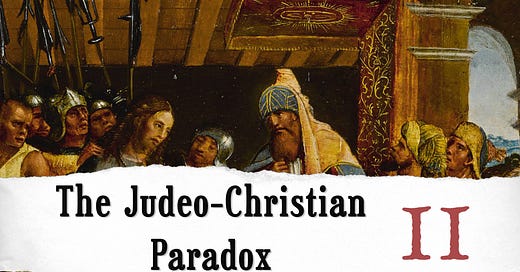



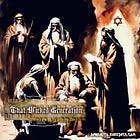
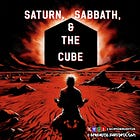
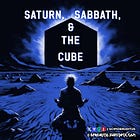
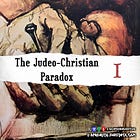


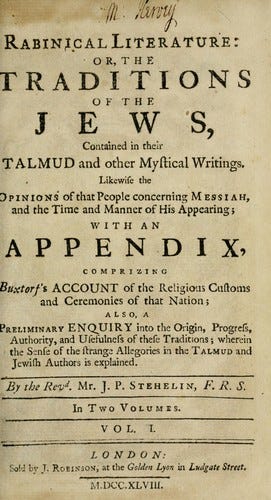
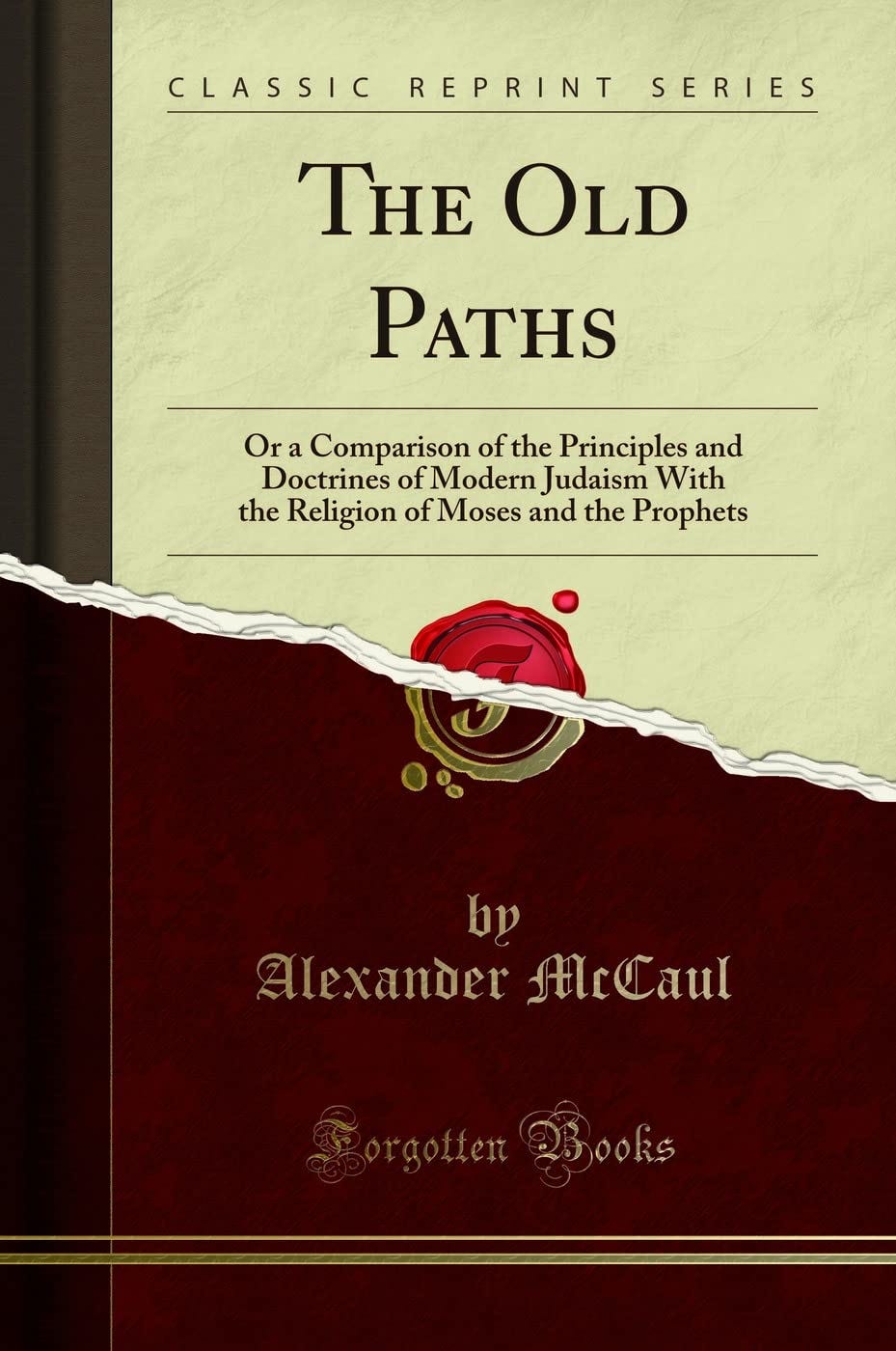
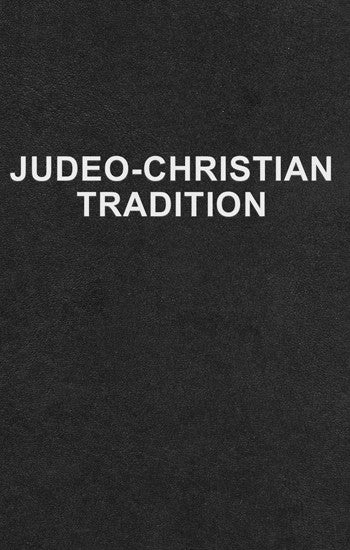
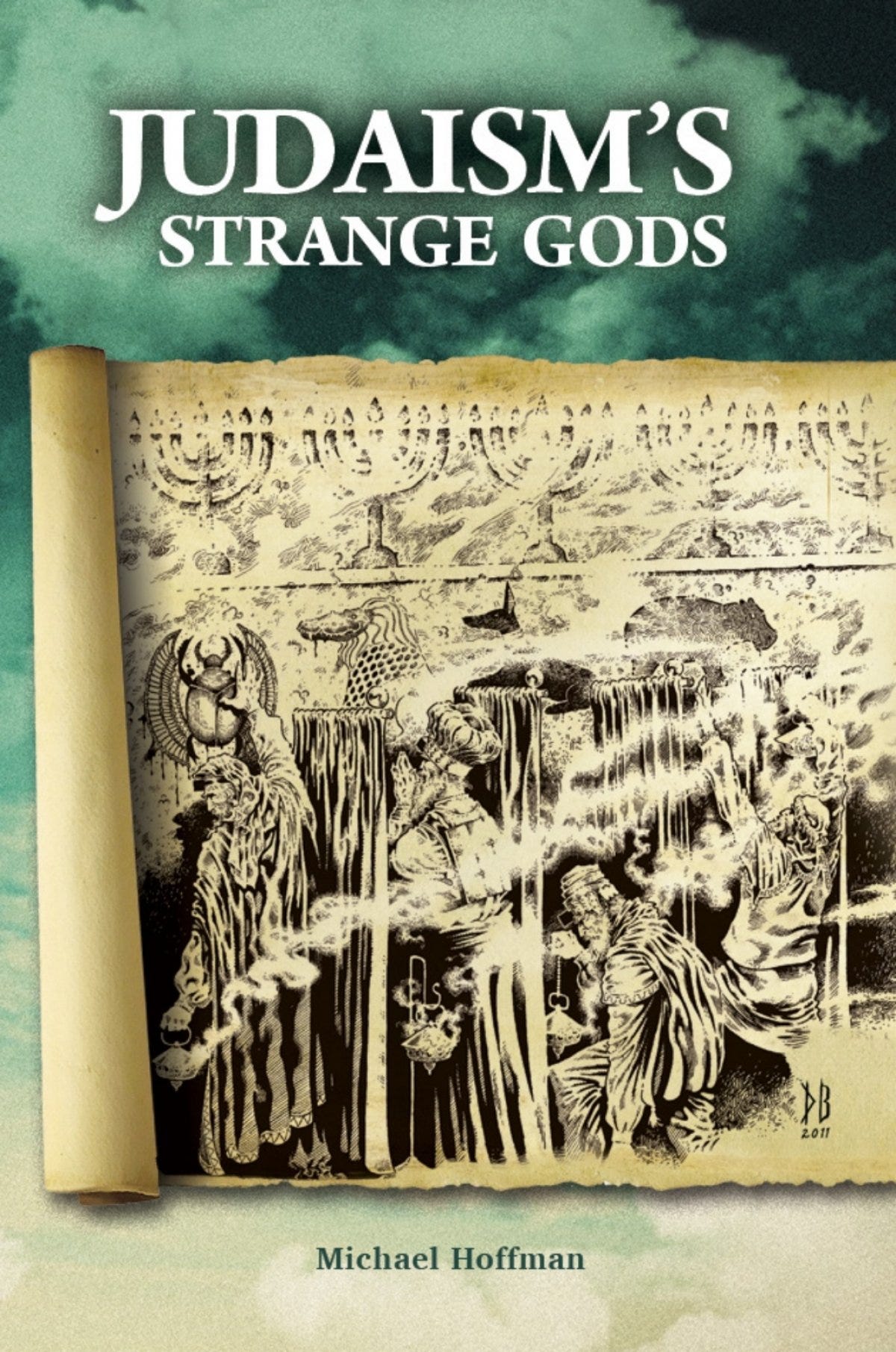
Doesn't this sound exactly like the Catholic system of Popes? So, "Judeo-Christian" should be (false) Judeo-(false) Christian.
As I have repeatedly said, the things infesting Israhell right now are entities of pure evil, who chose to be called Jews as a mockery of the Holy Bible and Jesus.
These things are no more from any tribe of biblical Israel than they are Hyborean. They are despicable, vengeful demons who have subverted and destroyed empires. If there is an earthly manifestation of Satan it is these, whose whole purpose is to destroy all things Godly.
To utter their unholy name in the same breath as the word Christian ought to make all who do so spontaneously combust.